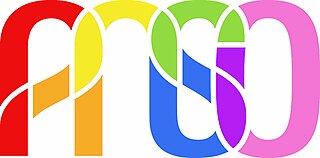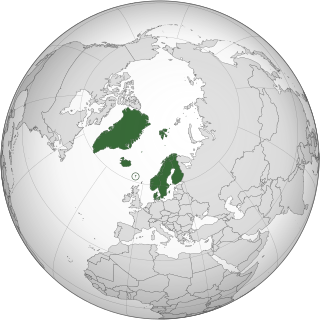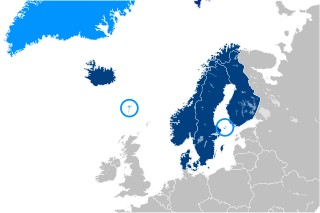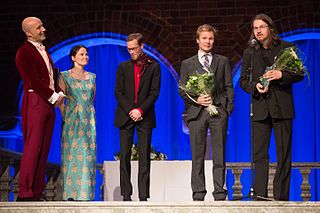An editor has performed a search and found that sufficient sources exist to establish the subject's notability.(October 2020) |
An editor has performed a search and found that sufficient sources exist to establish the subject's notability.(October 2020) |
NordForsk is an organization under the Nordic Council of Ministers that facilitates and funds Nordic research cooperation. Established in 2005, it aims to strengthen the research capabilities of the Nordic region by fostering collaboration across national borders in Denmark, Finland, Iceland, Norway, Sweden, and the autonomous regions of the Faroe Islands, Greenland, and Åland. NordForsk focuses on creating synergies between national research policies, funding agencies, and researchers to address shared challenges and advance the competitiveness of the Nordic region in the global knowledge economy. [1] [2] [3] By funding and managing research initiatives, NordForsk brings together national environments and ensures the highest quality research. [4] The NordForsk Board, appointed by the Nordic Council of Ministers, holds overall responsibility for the organization's operations, including its strategy, budget, and personnel policy. It comprises representatives from the largest national research funding agencies in Denmark, Finland, Iceland, Norway, Sweden, and the Faroe Islands, along with a representative from the Nordic University Association (NUS). Observers from Greenland, Åland, and the Nordic Council of Ministers also participate. The chairmanship rotates among the board members, ensuring shared leadership within the organization. [5]
Nordic cooperation is based on the beliefs that working together makes the Nordic region stronger, and that collective accomplishments will benefit not just the people living in the Nordic region but also the rest of the globe. [6] Here, NordForsk aims to be an effective facilitator of Nordic research co-operation based on scientific quality, efficiency and trust. In addition, this co-operation is also expected to generate Nordic added value. Activities that manifest and develop a sense of Nordic community; activities that increase Nordic competence and competitiveness; activities that strengthen the Nordic international influence; and activities that foster equal and balanced social, economic, and environmental interaction in the Nordic region are examples of activities that have Nordic added value. These activities are similar to those that could be undertaken at the national level but produce concretely positive effects through common Nordic solutions. [7] [8]
NordForsk is financed through contributions from national research funding agencies and institutions in the Nordic countries, along with funding from the Nordic Council of Ministers. It allocates funds to research projects, networks, and infrastructure that have strategic importance for the Nordic region. Projects funded by NordForsk often focus on issues of common interest, such as health, welfare, digitalization, the environment, climate change, and societal security. [9]
Collaboration is a core principle of NordForsk’s operations. It works closely with other organizations, such as the Nordic Innovation and Nordic Energy Research, to foster a comprehensive approach to research and innovation in the region. NordForsk also collaborates with other international research institutions and networks to enhance the impact of Nordic research. [10] [9] [11] [12]
NordForsk funds research by issuing calls developed in cooperation with national research funding organizations, primarily through the Open Invitation mechanism. Each proposal must be supported by the research councils from at least three Nordic countries. The NordForsk Board makes the final decision, with national funders providing 2/3 of the total budget and NordForsk adding 1/3 to the total. [13]
A committee reviews applications, considering international expert assessments, Nordic added value, and strategic relevance. [13]
Funding Models:

The Nordic Council is the official body for formal inter-parliamentary Nordic cooperation among the Nordic countries. Formed in 1952, it has 87 representatives from Denmark, Finland, Iceland, Norway, and Sweden as well as from the autonomous areas of the Faroe Islands, Greenland, and Åland. The representatives are members of parliament in their respective countries or areas and are elected by those parliaments. The Council holds ordinary sessions each year in October/November and usually one extra session per year with a specific theme. The council's official languages are Danish, Finnish, Icelandic, Norwegian, and Swedish, though it uses only the mutually intelligible Scandinavian languages—Danish, Norwegian, and Swedish—as its working languages. These three comprise the first language of around 80% of the region's population and are learned as a second or foreign language by the remaining 20%.

The Cooperation Committee of the Nordic Worker's Movement, better known by its abbreviation SAMAK, is an alliance of social democratic parties and labour councils in the Nordic countries. SAMAK consists of all social democratic parties and trade union organisations in the Nordic countries, including in Greenland, the Faroe Islands and Åland. The current President of the Committee as of 2024 is Mette Frederiksen, the leader of the Social Democrats and Prime Minister of Denmark. Antti Rinne is the General Secretary, and Kjersti Stenseng the Chair of the Board.
The Nordic Council Literature Prize is awarded for a work of literature written in one of the languages of the Nordic countries, that meets "high literary and artistic standards". Established in 1962, the prize is awarded every year, and is worth 350,000 Danish kroner (2008). Eligible works are typically novels, plays, collections of poetry, short stories or essays, or other works that were published for the first time during the last four years, or in the case of works written in Danish, Norwegian, or Swedish, within the last two years. The prize is one of the most prestigious awards that Nordic authors can win.

The Baltic Assembly (BA) is a regional organisation that promotes intergovernmental cooperation between Estonia, Latvia, and Lithuania. It attempts to find a common position in relation to many international issues, including economic, political and cultural issues. The decisions of the assembly are advisory.

The Association of Nordic and Pol-Balt Lesbian, Gay, Bisexual, Transgender and Queer Student Organizations (ANSO) is an international non-profit non-governmental organization striving to improve the quality of life of lesbian, gay, bisexual and trans - LGBT - students in the Nordic as well as Baltic countries. ANSO targets its activity to LGBT students in Denmark, Estonia, Faroe Islands, Finland, Iceland, Lithuania, Norway, Poland, Sweden and Åland.
The Nordic Data Grid Facility, or NDGF, is a common e-Science infrastructure provided by the Nordic countries for scientific computing and data storage. It is the first and so far only internationally distributed WLCG Tier1 center, providing computing and storage services to experiments at CERN.

Foreningen Norden, Föreningen Norden (Swedish), Norræna félagið (Icelandic), Norrøna Felagið (Faroese), Peqatigiiffik Nunat Avannarliit (Greenlandic) and Pohjola-Norden (Finnish), The Norden Associations, sometimes referred to as The Nordic Associations are non-governmental organisations in the Nordic countries promoting civil cooperation between the Nordic countries. Established since 1919, there are Norden Associations in Sweden, Norway, Denmark, Finland, Iceland, Greenland, the Faroe Islands and Åland. Since 1965 these national branches are grouped in an umbrella organisation Foreningene Nordens Forbund (FNF), The Confederation of Norden Associations. The co-operation between the Nordic countries include projects such as Nordjobb, Nordic Library Week and Norden at the Cinema.

The Nordic countries are a geographical and cultural region in Northern Europe and the North Atlantic. It includes the sovereign states of Denmark, Finland, Iceland, Norway and Sweden; the autonomous territories of the Faroe Islands and Greenland; and the autonomous region of Åland.
Nordbib is a funding programme to aid and develop Open access initiatives within the academic field in the Nordic countries. Nordbib is funded by Nordforsk; the advisory and project funding body for the Nordic Council of Ministers on matters of research and research education. Nordbib will run from 2006 to 2009. The organisation is governed by a board with members representing the major university libraries in the five countries as well as a NordForsk representative.

Arctic cooperation and politics are partially coordinated via the Arctic Council, composed of the eight Arctic states: the United States, Canada, Iceland, Norway, Sweden, Finland, Russia, and Denmark with Greenland and the Faroe Islands. The dominant governmental power in Arctic policy resides within the executive offices, legislative bodies, and implementing agencies of the eight Arctic countries, and to a lesser extent other countries, such as United Kingdom, Germany, European Union and China. NGOs and academia play a large part in Arctic policy. Also important are intergovernmental bodies such as the United Nations and NATO.
The Nordic Network for Interdisciplinary Environmental Studies (NIES) is a research network for environmental studies based primarily in the humanities. By organizing regular conferences, symposia and workshops, NIES aims to create opportunities for researchers in the Nordic countries who address environmental questions to exchange ideas and develop their work in various interdisciplinary contexts. Fields represented by members of the network include Ecocriticism, Environmental history, Environmental philosophy, Science and Technology Studies, Art history, Media studies, Ecological economics, Human Geography, Cultural studies, Anthropology, Archeology, Sustainability studies, Education for Sustainability and Landscape studies.

Nordic-Baltic Eight (NB8) is a regional co-operation format that includes Denmark, Estonia, Finland, Iceland, Latvia, Lithuania, Norway, and Sweden. Under NB8, regular meetings are held of the Baltic and Nordic countries' Prime Ministers, Speakers of Parliaments, Foreign Ministers, branch ministers, Secretaries of State and political directors of Foreign Ministries, as well as expert consultations where regional issues and current international topics are reviewed.

The Nordic Defence Cooperation (NORDEFCO) is a collaboration among the Nordic countries in the area of defence. Its five members are Denmark, Finland, Iceland, Norway, and Sweden.
Nordic Innovation is an organization under the NordicCouncil of Ministers. They to aim to make the Nordics a pioneering region for sustainable growth by promoting entrepreneurship, innovation and competitiveness in Nordic businesses.
OTSEM is a research network of several Northern European universities. Originally Nordic-German in nature, it now includes British universities as well, which gives it a Nordic-German-Anglo profile. The organization focuses on research into the Hebrew Bible and promotes the development of young scholars in particular, especially through annual seminars and special lectures. Though encompassing theological faculties and using the term Old Testament, OTSEM is non-confessional, with members from Christian, Jewish, Muslim, and secular backgrounds.

The Baltic Sea Parliamentary Conference (BSPC) was established in 1991 as a forum for political dialogue between parliamentarians from the Baltic Sea Region. BSPC aims at raising awareness and opinion on issues of current political interest and relevance for the Baltic Sea Region. It promotes and drives various initiatives and efforts to support a sustainable environmental, social and economic development of the Baltic Sea Region. It strives at enhancing the visibility of the Baltic Sea Region and its issues in a wider European context.

The Nordic Council Children and Young People's Literature Prize is awarded for a work of children's or young adult literature written in one of the languages of the Nordic countries. It was established by the Nordic Council in 2012 after an initiative by ministers of culture in the Nordic countries. The prize was first awarded on 30 October 2013.
Eva-Mari Aro is a Finnish biologist and professor of plant molecular biology at the University of Turku, Finland. Her research has focused on the function, regulation, damage, repair, and evolution of the machinery of photosynthesis, with applications in renewable energy. She was elected to the Finnish Academy of Science and Letters in 2001 and was elected a foreign associate of the National Academy of Sciences in 2018.

Jóhanna Einarsdóttir is a professor of Early Childhood Education at the University of Iceland.